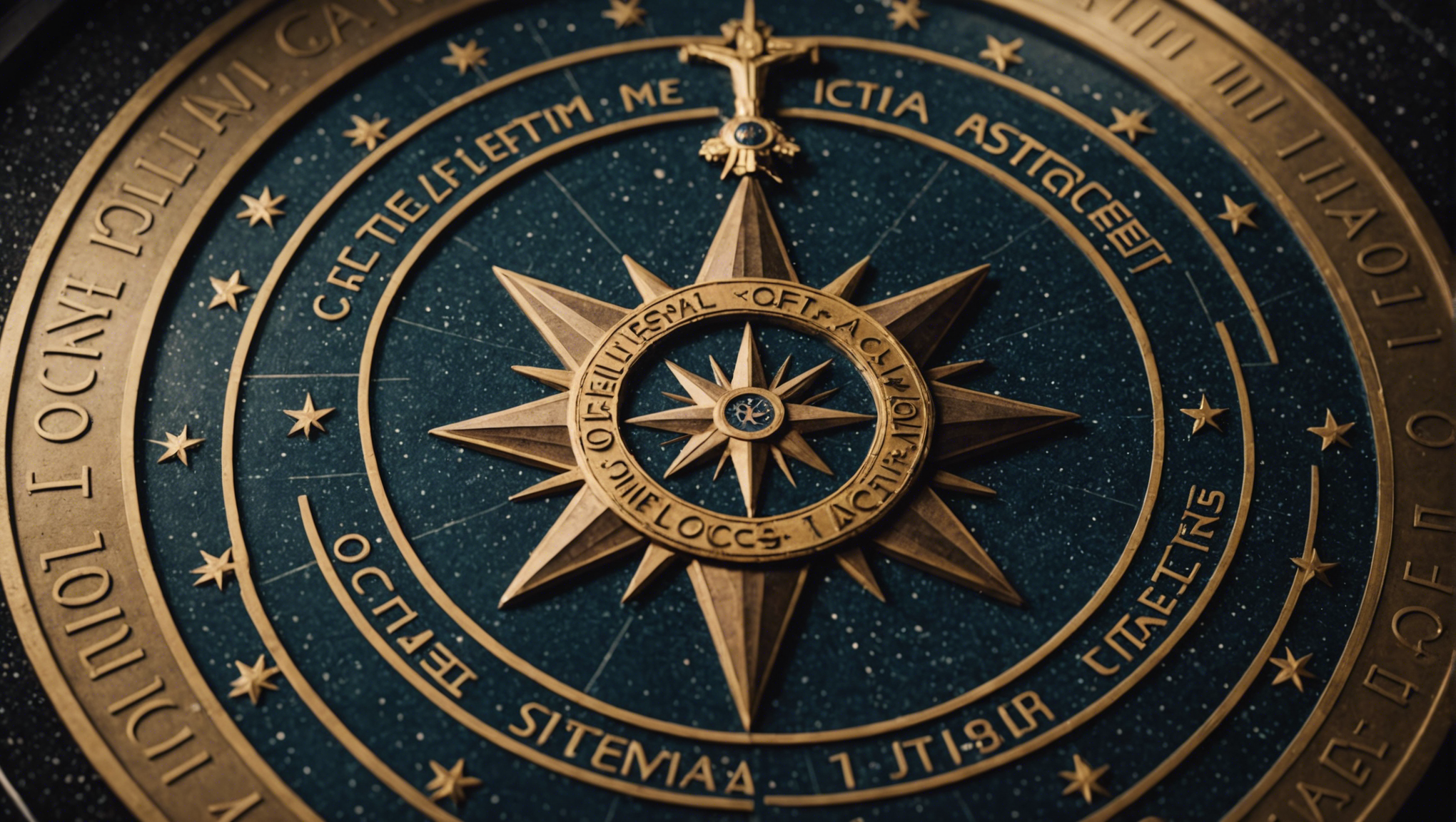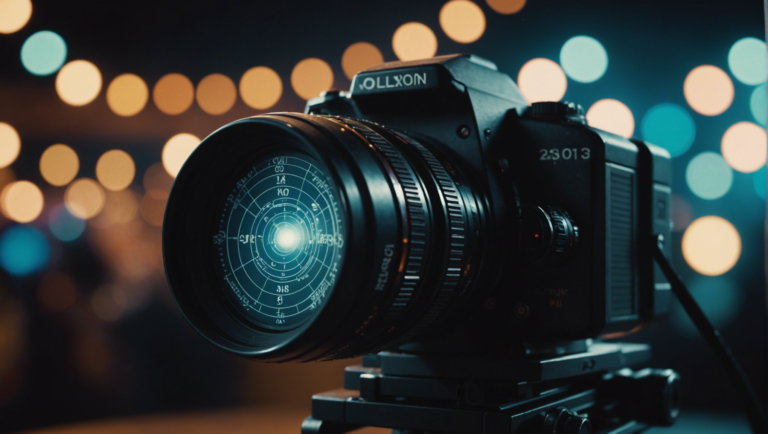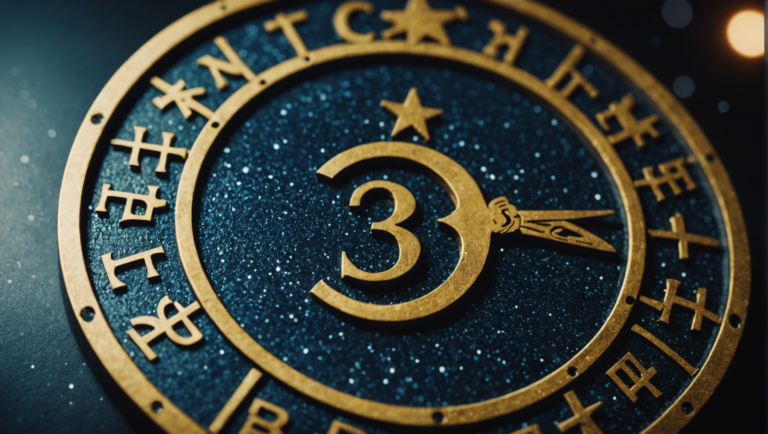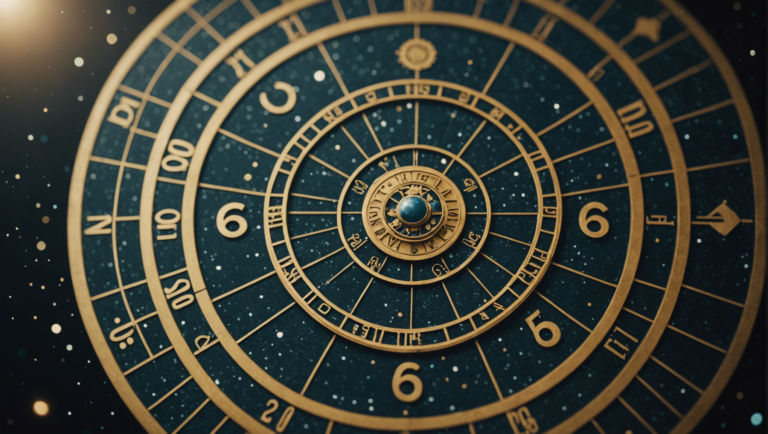Does The Cia Have Astrologers
The Fascinating Inquiry: Does the CIA Employ Astrologers for Intelligence Gathering?
Exploring the Realms of Secrecy: Astrology in Intelligence
The question of whether the Central Intelligence Agency (CIA) utilizes astrologers for gathering intelligence is both intriguing and shrouded in mystery. This fascinating inquiry takes us deep into the corridors of espionage, where the unconventional and the orthodox methods blend in the pursuit of national security. The CIA, known for its clandestine operations and intelligence-gathering capabilities, operates within a cloak of secrecy that naturally breeds speculation and curiosity regarding its methodologies.
Unraveling Historical Contexts and Practices
The use of unconventional methods for intelligence purposes is not a novel concept. Historically, governments have resorted to various means to gain an upper hand in information warfare. Astrology, the study of celestial bodies’ movements and positions and their supposed influence on human affairs and natural phenomena, has been a part of human culture for thousands of years. Despite its contentious validity in the scientific community, astrology’s historical significance in strategic decision-making is well documented.
In the Second World War, for instance, both the Allies and Axis powers were known to have consulted astrologers in an attempt to gain strategic advantages. This historical precedent adds a layer of plausibility to the notion that modern intelligence agencies might adopt similar approaches.
The Modern Intelligence Paradigm and Astrology
In the contemporary context, intelligence agencies like the CIA are engaged in a constant struggle to gather actionable intelligence, utilizing everything from satellite technology to human sources. The very essence of intelligence work necessitates an open-minded approach to information gathering, analyzing all possible angles that could yield a strategic or operational advantage.
However, the question arises: does this openness extend to employing astrologers as part of their intelligence toolkit? Officially, there is no concrete evidence or affirmation from the CIA regarding the use of astrology for intelligence purposes. The agency is renowned for its rigorous analytical methods and reliance on empirical data, often dismissing methods considered pseudoscientific or lacking in verifiable evidence.
The Intersection of Belief, Information, and Strategy
Examining the potential intersection between astrology and intelligence gathering invites a broader discussion on the role of belief and unconventional methods in strategic decision-making. While astrology lacks the empirical backing of other tools in the intelligence community’s arsenal, the psychological and cultural aspects it encompasses could provide unique insights.
For instance, understanding the astrological beliefs of a foreign leader or key decision-makers could lend unexpected perspectives on their motivations, fears, and decision-making processes. In this context, astrology could serve more as a psychological tool rather than a direct method of predicting events or outcomes.
Navigating the Balance Between Fact and Speculation
Navigating the delicate balance between fact and speculation is crucial when considering the potential use of astrology by the CIA. The lack of direct evidence points toward a skepticism of astrology’s role in official intelligence gathering. However, the intelligence community’s known use of psychological profiles and cultural analyses suggests that nothing is off-limits if it can provide an edge in understanding an adversary.
Engaging the Reader’s Curiosity and Investigation
The exploration of astrology’s role, or lack thereof, in CIA intelligence operations invites readers to delve into the broader topic of unconventional methods in espionage. It challenges the layperson’s perception of intelligence work, extending beyond the gadgets and intrigue to the psychological and potentially esoteric strategies that could be in play.
The question of the CIA’s employment of astrologers for intelligence gathering remains a fascinating inquiry, sitting at the intersection of secrecy, history, and the endless quest for knowledge. While definitive answers may elude us, the discussion itself broadens our understanding of intelligence’s multifaceted nature, embracing the known and the mysterious alike.
The Historical Intersection of Astrology and Espionage: A Global Overview
Throughout history, the realms of astrology and espionage have intriguingly interwoven, providing a fascinating tale of how celestial interpretations have influenced intelligence operations across the globe. Despite skepticism from some quarters, astrology’s role in guiding political and military decisions, spying tactics, and influencing world leaders cannot be underestimated.
Astrology’s Role in Strategic Espionage
Astrology, often seen as a mystical art, has played a critical role in the art of espionage. Nations have historically turned to astrologers for predictions to guide strategic decisions during wartime and peace. By analyzing the alignment of the stars and planets, astrologers have attempted to forecast outcomes of battles, the best times for initiating operations, and even the fates of nations.
This utilization of celestial insights in espionage isn’t a modern construct but deeply rooted in historical contexts. For instance, the British intelligence during World War II famously employed Louis de Wohl as an astrologer in a psychological operation aimed at undermining Nazi morale by predicting Hitler’s downfall through horoscopes.
Astrological Influence on Global Leaders
The influence of astrology on global leaders and their decisions is another noteworthy intersection. Many world leaders have been known to consult astrologers to make key decisions, impacting diplomatic relations and espionage activities. The most notable example might be Nancy Reagan’s reliance on an astrologer following the assassination attempt on her husband, President Ronald Reagan. Reports suggest that her decisions influenced the scheduling of major political events and even summit meetings, undoubtedly impacting international relations and intelligence operations.
Espionage Tactics and Astrological Predictions
Espionage agencies have also reportedly used astrology as a means to understand and predict the behaviors of foreign leaders and operatives. By constructing detailed astrological profiles, intelligence officers believed they could forecast a leader’s future decisions or uncover weaknesses that could be exploited in psychological operations. Although the efficacy of such tactics remains debatable, the very consideration of astrology in this context highlights its perceived value in the intricate world of intelligence.
Cultural and Historical Variations in Astrological Espionage
The role of astrology in espionage exhibits fascinating variations across different cultures and historical periods. In ancient times, Chinese emperors employed court astrologers not only for predicting auspicious dates but also for advising on military tactics and spying activities. Similarly, the strategic use of astrologers by the rulers of the Roman Empire and the Ottoman Empire reflects a global acknowledgement of astrological insights in the art of governance and warfare.
Skepticism and the Modern Intelligence Community
In the contemporary digital age, the reliance on astrology in espionage might seem outdated or relegated to the fringes. However, the enduring human fascination with what the stars portend ensures astrology’s persistence in some form within global strategy spheres. Skepticism from the scientific community has led to a more clandestine utilization of astrological services, yet anecdotal evidence suggests that private consultations for political and strategic insights continue.
The Future of Astrological Espionage
As we move further into the 21st century, the question remains: will astrology maintain its niche in the espionage toolkit? While technology and data analytics have transformed intelligence operations, the unpredictability of human behavior and decision-making might still leave room for astrological interpretations. Whether as a tool for psychological operations, decision-making guidance, or merely as historical curiosity, the intersection of astrology and espionage remains a testament to the human desire for knowledge and the unseen forces that might shape our world.
In examining the profound and often underexplored intersection of astrology and espionage, it’s clear that this relationship, whether grounded in belief or skepticism, showcases the diverse strategies that nations and leaders have employed to secure power and navigate the complex international landscape. As we look back on history, the intriguing blend of mysticism and intrigue continues to offer unique insights into the human condition and the lengths to which individuals will go to protect or advance their interests in the ever-evolving game of global politics and warfare.
Unveiling the CIA’s Stance on Non-Traditional Intelligence Techniques
The intrigue surrounding intelligence agencies often leads to questions about their methods, particularly regarding the use of non-traditional tactics. One such area of curiosity involves the Central Intelligence Agency (CIA) and its stance on incorporating methodologies beyond the standard spy toolkit. Among these, the query of whether the CIA employs astrologers offers a fascinating exploration into the intersection of espionage and the metaphysical.
Exploring Historical Context and Initiatives
The CIA’s relationship with non-traditional intelligence gathering is not without precedent. During the Cold War era, a project known as Stargate aimed to investigate and potentially deploy psychic abilities for spying activities. This initiative, part of a larger exploration into paranormal phenomena, underscores the agency’s openness to unconventional methods. However, the leap from psychic espionage to employing astrology requires a nuanced understanding of both the practical applications and the underlying skepticism.
Astrology, a practice dating back thousands of years, posits that the positions and movements of celestial bodies can influence events on Earth, including human affairs and natural phenomena. The question at hand is whether such a belief system has found a place within the CIA’s strategy for intelligence collection and analysis.
Analyzing the Practicality of Astrological Intelligence
When considering the potential use of astrologers by the CIA, several factors come to the forefront. The first is the issue of reliability. Intelligence agencies thrive on precise, actionable information. The subjective and interpretative nature of astrology poses significant challenges in this context. Unlike signals intelligence (SIGINT) or human intelligence (HUMINT), astrological insights cannot be easily verified or quantified.
Furthermore, the complexity and variability of astrological readings could complicate their integration into the analytical frameworks traditionally used in intelligence work. Analysts require clear, unambiguous data to inform risk assessments and operational planning. Astrological interpretations, by their nature, offer a multitude of possibilities rather than definitive predictions.
Ethical and Public Perception Considerations
Public trust and ethical considerations also play crucial roles in the CIA’s operational choices. Employing non-traditional techniques such as astrology could raise eyebrows both within the intelligence community and among the general public. Skepticism about astrology’s validity might undermine confidence in the agency’s capacity to safeguard national security effectively.
In situations where every decision and method are subject to intense scrutiny, the CIA must balance innovation with credibility. This balancing act influences not only how intelligence is gathered but also how it is perceived externally. The agency’s legitimacy, in the eyes of both American citizens and international partners, hinges on its adherence to methods that are both effective and defensible.
Concluding Perspective on Non-Traditional Intelligence Techniques
The CIA’s foray into non-traditional intelligence gathering techniques reflects a broader willingness to explore every potential avenue for securing an advantage in the complex world of international espionage. While historical endeavors like Project Stargate demonstrate an openness to the extraordinary, the practicalities of employing astrology within an intelligence framework present substantial challenges.
Given the prerequisites of verifiability, reliability, and public trust, the likelihood of the CIA relying on astrologers for intelligence work remains low. The agency’s mandate to deliver precise, actionable intelligence arguably necessitates a reliance on more empirically grounded methodologies.
However, the world of intelligence is ever-evolving, and the pursuit of unseen advantages continues. While astrology might not currently play a role in the CIA’s operations, the agency’s history of innovative endeavor suggests it will continue to explore the fringes of science and beyond in its mission to protect national security.
In the realm of clandestine operations, where uncertainty prevails, and secrets abound, the quest for knowledge—whether by traditional or unconventional means—remains a constant. The coupling of curiosity and caution characterizes the intelligence community’s approach to non-traditional intelligence techniques, balancing the exploration of potential tools with the imperatives of practicality, ethics, and public accountability.
Comparing the CIA’s Known Psychological Operations to Astrological Analysis
Understanding Psychological Operations: A Look into CIA Tactics
The Central Intelligence Agency (CIA), known for its espionage and intelligence-gathering efforts, has long been associated with psychological operations (psyops), strategies designed to influence, persuade, and alter the behavior of individuals or societies. These operations, steeped in secrecy, manipulation, and mind games, stand in contrast to the more mystical and speculative realm of astrological analysis. This article aims to compare these seemingly disparate methodologies, shedding light on their objectives, methods, and impacts.
The Core of CIA Psychological Operations
Psychological operations are meticulously planned missions executed to convey selected information and indicators to audiences, shaping their emotions, motives, objective reasoning, and ultimately, the behavior of governments, organizations, groups, and individuals. The CIA has historically utilized psyops to undermine adversaries, sway public opinion, and control the narrative in favor of U.S. interests during the Cold War, the War on Terror, and other geopolitical conflicts. Techniques include propaganda dissemination, misinformation, the use of media to influence public sentiment, and covert operations aimed at destabilizing governments. These operations are grounded in an understanding of human psychology, behavioral science, and strategic communication.
Astrological Analysis: A Different Spectrum of Influence
On the other end of the spectrum, astrological analysis, the study of celestial bodies’ supposed influence on human affairs and natural phenomena, offers insights based on positions of stars, planets, and the moon. Unlike psyops’ tangible and scientifically rooted strategies, astrology relies on symbolism, tradition, and belief systems stretching back millennia. Astrologers interpret celestial movements to make predictions about individual behavior, outcomes of events, and the interplay of cosmic forces with human existence. Although widely considered a pseudoscience by the scientific community, astrology’s influence on human culture and individual decision-making is undeniable.
Contrasting Objectives and Methods
The CIA’s psychological operations and astrological analysis diverge significantly in their objectives. While psyops aim to control or alter behavior for political or military advantage, astrology seeks to provide guidance, insight, and predictions for personal or spiritual reasons. Psyops employ scientific research, data analysis, and psychological theories to craft messages and strategies that will have the desired impact on their target audience. Astrology, conversely, uses the symbolic meaning of planetary alignments, often personalized to an individual’s birth chart, to offer predictions and insights.
Psyops actions are rooted in manipulation and often have immediate and concrete objectives, such as turning public opinion against a political figure or destabilizing societal trust in an institution. Astrology’s influence is more nebulous, aiming to affect personal choices and perspectives based on a broader, more spiritual or existential understanding of one’s place in the universe.
Impact and Perception in Society
The societal impacts of these vastly different approaches can be profound but manifest in disparate ways. The effectiveness of psyops in achieving geopolitical objectives or influencing social narratives can often be measured in real-time, through changes in public opinion polls, policy shifts, or the outcome of elections. The impact of astrology, however, is manifested in the individual choices and attitudes of those who subscribe to its practices, potentially influencing personal relationships, career decisions, and self-perception.
Psyops, given their secretive nature and association with manipulation, often carry negative connotations. In contrast, astrology, despite skepticism from the scientific community, enjoys widespread popularity and acceptance as a form of entertainment or personal guidance, largely free from the ethical and moral quandaries inherent in psychological operations.
Analyzing Through a Critical Lens
Both psychological operations by the CIA and astrological analysis wield power in their ability to influence human behavior, albeit in fundamentally different ways. One is grounded in the pragmatic application of psychological theories and strategic manipulation for political ends; the other in the mystical and speculative interpretation of celestial influence on human affairs. This comparison invites a deeper reflection on the nature of influence, the ethical considerations of manipulation for political advantage, and the enduring human quest for understanding and meaning in a complex world.
The Impact of Public Perception on Classified Intelligence Strategies
Bridging the Gap Between Public Perception and Classified Operations
The intricate dance between the need for secrecy in intelligence operations and the public’s right to know is a nuanced affair. It shapes not only international politics but also national security policies and the methods by which intelligence agencies operate. The influence of public perception on classified intelligence strategies is profound, complex, and multifaceted, affecting various dimensions of intelligence work from operational tactics to strategic planning.
The Power of Public Sentiment in Intelligence Agenda Setting
Public opinion has always played a pivotal role in shaping the priorities and approaches of intelligence agencies. In democracies, particularly, where governance is subject to public scrutiny and electoral pressures, the sentiments of the populace can compel intelligence agencies to redirect their focus or alter their methods. This dynamic is evident in the aftermath of significant events that capture public attention and concern. For instance, the reaction to acts of terrorism, cyber threats, or espionage activities often leads to a reassessment of intelligence priorities and strategies to align with public expectations and safety concerns.
Transparency Versus Secrecy: Finding the Middle Ground
The debate over how much the public should know about classified operations is ongoing. On one hand, transparency builds trust and ensures accountability, providing the public with assurances that intelligence activities are in the nation’s best interests without infringing on personal freedoms. On the other hand, too much transparency can jeopardize operational effectiveness, revealing tactics and strategies to adversaries and endangering national security. Striking a balance is key, and intelligence agencies often find themselves navigating the tightrope between safeguarding sensitive information and addressing the public’s demand for openness.
The Role of Media in Shaping Intelligence Policies
Media coverage plays a significant role in shaping public perception of intelligence activities. Exposes and investigative reports can sway public opinion, prompting intelligence agencies to reassess and sometimes modify their operations. This relationship between the media, the public, and intelligence entities is a dynamic ecosystem where each influences the other. Intelligence agencies must constantly monitor this environment to mitigate adverse effects on national security while adhering to democratic principles of transparency and accountability.
Adapting to the Digital Age: The Cybersecurity Conundrum
In the digital era, the intersection of public perception and intelligence strategies is most pronounced in the realm of cybersecurity. As cyber threats become more sophisticated and pervasive, the public’s concern over digital security and privacy has intensified. Intelligence agencies are thus compelled to evolve their strategies, not only to counteract these threats but also to do so in ways that reassure the public about the protection of their digital rights and privacy. This adaptation involves not only technological advancements but also a reevaluation of policies and practices to ensure they meet public expectations without compromising security.
The Feedback Loop: Public Opinion and Intelligence Evolution
There exists a continuous feedback loop between public perception and the evolution of intelligence strategies. Public opinion acts as a barometer for the acceptability and perceived effectiveness of intelligence operations, guiding adjustments and refinements. Conversely, the outcomes of intelligence strategies influence public sentiment, either bolstering confidence in national security measures or sparking debate over their implications. This interplay is crucial for the ongoing evolution of intelligence tactics and policies, aligning them with the values and concerns of the society they aim to protect.
In essence, the impact of public perception on classified intelligence strategies is a testament to the delicate balance between national security and democratic accountability. Intelligence agencies must navigate this complex landscape, constantly adapting to ensure both the safety of the nation and the trust of its citizens. As public sentiment shifts and technology evolves, so too must the methodologies and priorities of those tasked with safeguarding national interests.
Conclusion
Exploring the captivating question of whether the CIA employs astrologers for intelligence purposes has transported us into a realm where the arcane meets the covert, challenging our perceptions of traditional espionage tactics. This investigation has not only unearthed the historical intersection of astrology and espionage but has also shone a light on the agency’s stance toward non-traditional intelligence techniques. Furthermore, comparing the CIA’s psychological operations with astrological analysis has provided a unique lens through which to view the organization’s diverse methodology. understanding the impact of public perception on classified intelligence strategies has underscored the complex relationship between secrecy and societal beliefs.
The journey through history has revealed that the use of astrology in the realm of international espionage is not as far-fetched as it might initially seem. Astrological intelligence-gathering has roots that stretch back to ancient times, with various global entities acknowledging its value in shaping strategies and making critical decisions. This historical backdrop provides a rich context for imagining the potential applications of such a practice within modern intelligence agencies like the CIA.
Despite this fascinating historical precedent, the CIA’s current stance on employing non-traditional intelligence techniques, including astrology, remains shrouded in uncertainty. The agency is known for exploring various unconventional methods to gain a strategic edge, yet official acknowledgment of using astrology as a tool for intelligence gathering remains elusive. This ambiguity highlights the intelligence community’s propensity for secrecy, making the definitive existence of astrological espionage within the CIA a tantalizing mystery.
The comparative analysis between the CIA’s psychological operations and astrological analysis has further deepened our understanding of the agency’s approach to intelligence gathering. Psychological operations are designed to influence, engage, and defeat adversaries, relying on an in-depth understanding of human behavior and societal structures. Astrological analysis, with its focus on predicting outcomes based on celestial phenomena, might seem like an entirely different beast. Yet, both methods share a common goal: to gather insights that are not readily accessible through conventional means. This comparison suggests that if the CIA were to employ astrologers, their role would likely complement existing psychological strategies, offering another layer of interpretation and insight.
Public perception plays a significant role in shaping the dialogue around classified intelligence strategies. The idea that the CIA might engage astrologers fosters a blend of skepticism and intrigue among the public. This perception influences not only how intelligence agencies are viewed but also how they operate within the bounds of secrecy and disclosure. The balance between maintaining public trust and safeguarding national security becomes particularly delicate when unconventional intelligence-gathering methods are involved. Whether or not the CIA employs astrologers, the agency must navigate the complexities of public scrutiny and the demands for transparency.
The exploration of whether the CIA utilizes astrologers for intelligence purposes opens up a broader discussion about the nature of espionage, the evolution of intelligence gathering methods, and the boundaries between the scientifically measurable and the metaphysically speculative. While definitive answers may remain beyond our grasp, this inquiry illuminates the innovative and sometimes unconventional strategies that intelligence agencies may explore in their quest for security and information superiority. It prompts us to consider the endless possibilities that lie at the intersection of ancient wisdom and modern espionage, inviting us to ponder the unseen forces that might play a role in shaping the course of history and international relations.
As we delve into these uncharted territories, we are reminded of the ever-evolving landscape of intelligence work, where the only constant is the pursuit of knowledge—by any means necessary. Whether employing astrologers or leveraging the latest in technological advancements, agencies like the CIA are emblematic of the relentless human endeavor to understand, predict, and influence the world around us.







